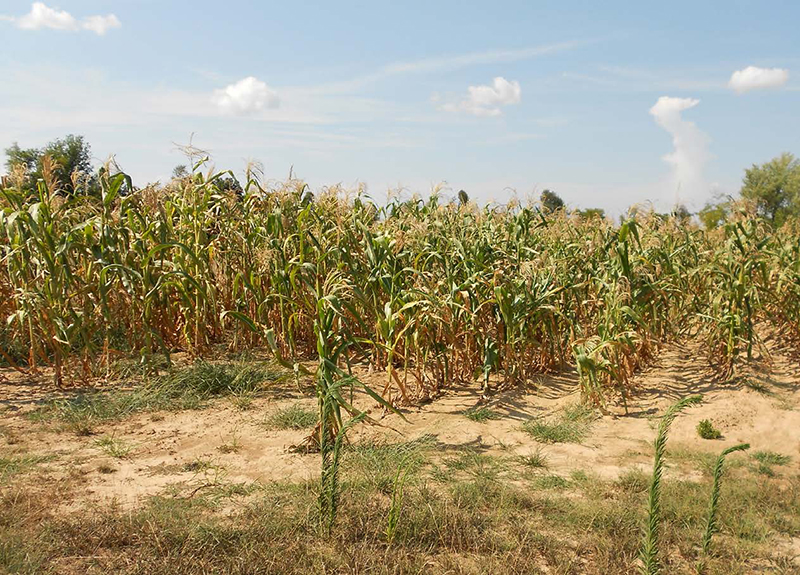Article originally published in Northwestern's Office for Research September 2016 Newsletter.
With news from NASA that August was the hottest month ever recorded comes the realization that the economic impact of global warming may be worsening.
“The idea that labor productivity goes down as the temperature rises dates back hundreds of years,” says Ben Jones, strategy and faculty director of the Kellogg Innovation and Entrepreneurship Initiative. “What surprised many economists was our discovery that this goes beyond an agricultural phenomenon; there is just as big of an effect on industrial output.”
Jones recently published his fifth climate-related paper, “Opportunities for Advances in Climate Change Economics,” in Science. In 2009 he was part of a team of investigators who found that for every 1 degree Celsius (2.2 degrees Fahrenheit) a developing country warms, that nation’s economic growth rate will be 1 percentage point lower than it otherwise would have been.
Meanwhile, the past 11 months have each set new average high-temperature records, and the first six months of 2016 were the hottest on record — 1.3 degrees Celsius (2.4 degrees Fahrenheit) warmer than the average in 1880.
“This is not just a problem for the future,” says Jones, a development economist whose research aims to understand why countries are rich or poor. “We’re already experiencing a number of climatic changes and we need to better understand the consequences of warming so that we can determine what costs we’re willing to tolerate and how to intervene.”
Past research has noted that the closer a country is to the equator, the poorer it’s likely to be. Whether or not climate truly effects how the world’s economies have developed, however, has remained a subject of debate.
Considering that hotter countries are typically poorer than colder countries, Jones and colleagues decided, in one study, to examine regions within a nation. Using data from North American states and territories, researchers learned that hotter regions within countries are also poorer.
“This further suggests that hotter temperatures have a causative negative effect on economic development,” says Jones, an Institute for Public Research associate. “Another surprising aspect of our work was the discovery that political economy problems tend to be exacerbated by heat. We have found that there are more coups in hot years — not to mention more crime, riots, and group conflict, as has been shown by other researchers. The mechanisms behind these effects are not yet well understood, but it could be rooted in our own physiological response to heat or be a downstream effect of economic losses caused by warming.”
Of course, with air conditioning, some of the negative effects on industrial productivity can be mitigated.
“If societies are able to adapt appropriately, than studies based on the short-run effects of temperature shocks would be overstating the long-term effect of climate change,” says Jones. “But evidence in favor of substantial adaptation in agriculture and several other areas is currently weak. Moreover, if societies are too slow to react the effects can become increasingly destructive, possibly to the point where they are irreversible.”
One of the biggest considerations is whether the effect of global warming on economies is a level or growth effect. A level effect allows for a rebound to occur after adverse climatic events. Growth effects linger and continue to influence economic outcomes for a prolonged time.
To use farming as an example, a hot year might produce a level effect if production is down but is then offset by increased output the next year or two. But if it is a tough year and the lack of crops results in an inability to invest in tractors, or if the high heat stymies innovation, farmers may be permanently poorer than they otherwise would have been.
“This is a very important consideration from a policy point of view,” says Jones. “If you think climate change causes a growth effect, the case for intervening to limit climatic change strengthens dramatically.”
At the extreme end of current models, economists using level-effect reasoning predict we might be 20 percent poorer in 2100 than we otherwise would have been. That may sound bad, but these models still predict a growing economy that would make up that loss after another a decade or so.
“Recent empirical studies run counter to many of these models, including the primary models used to guide global public policies,” says Jones. “If warming causes a growth effect, we might not make up those losses for a very long time. Overall, the recent research on economic damages of warming suggests much larger economic risks than policymakers have been considering.”



